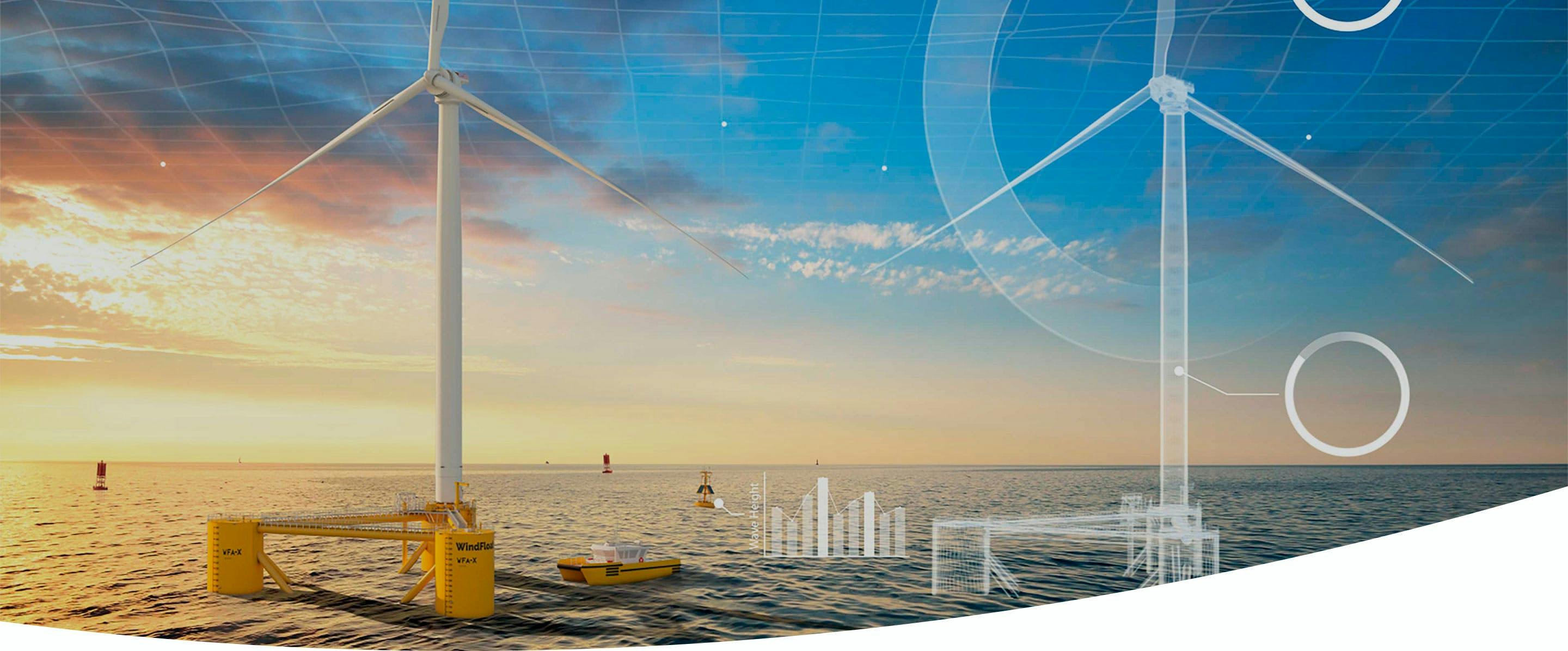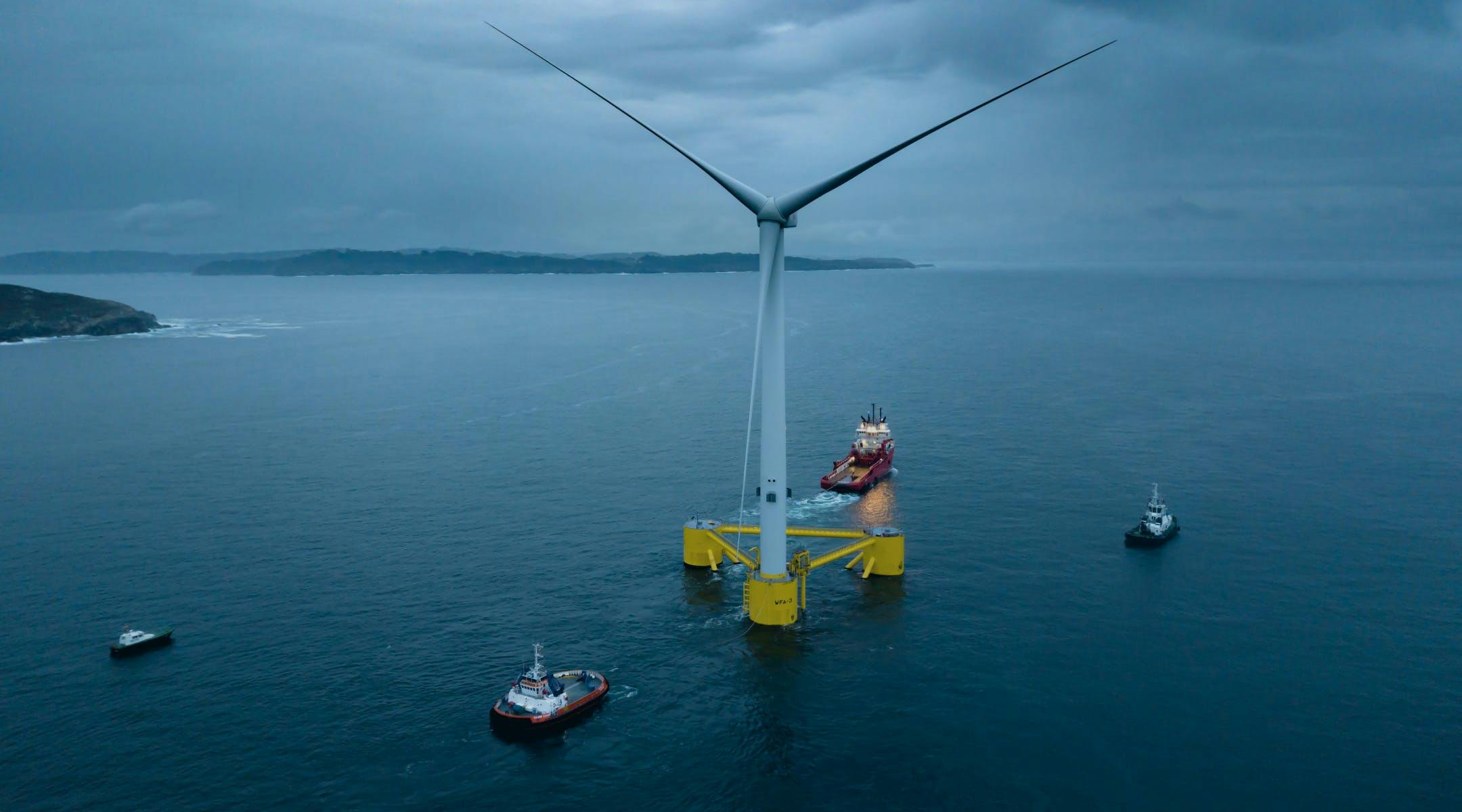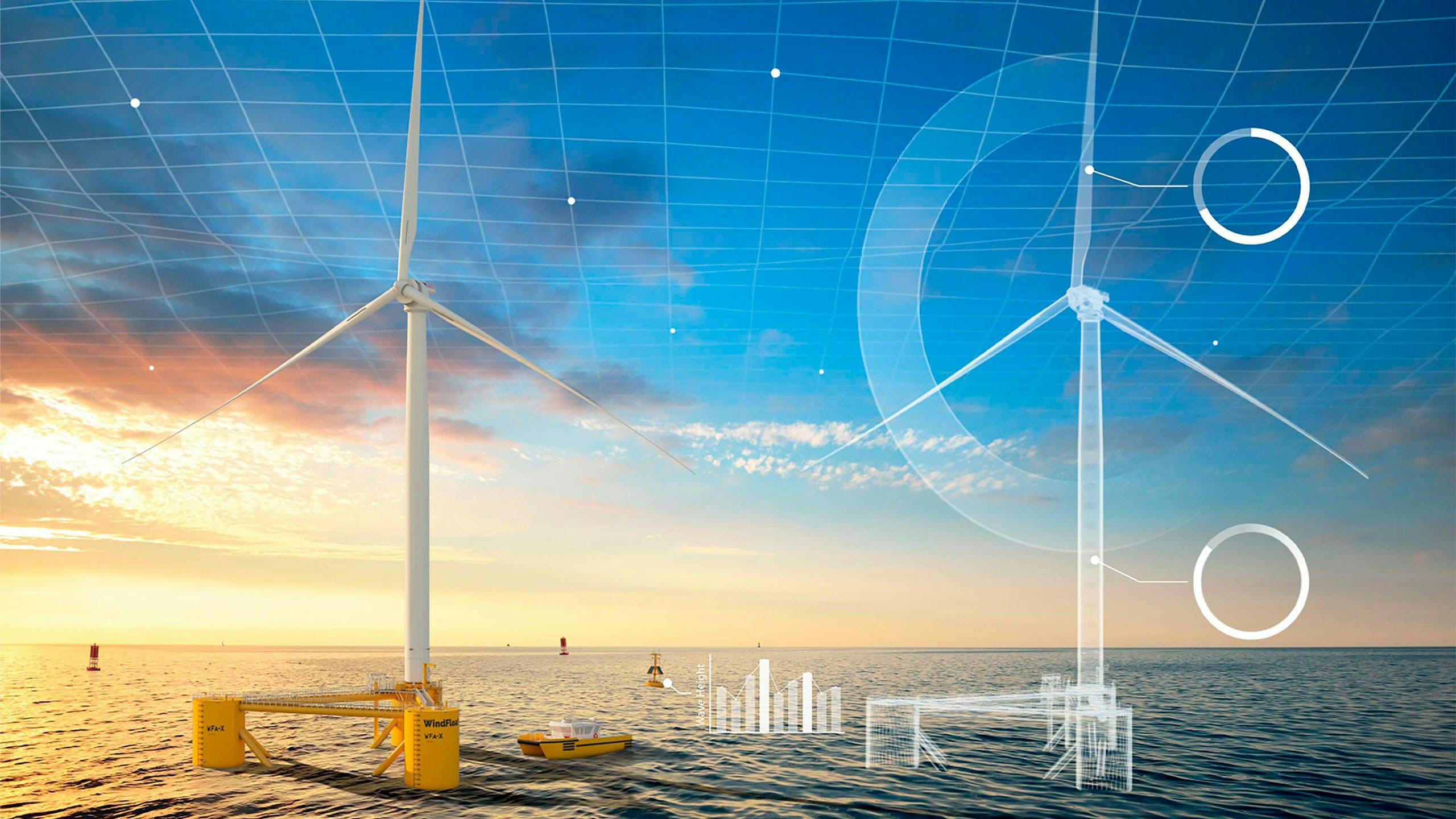
DigiFloat
DigiFloat will develop, validate and deploy the world's first digital twin for floating offshore wind turbines.
Scope
Digitalization, predictive O&M
Funding
Total budget
$4,175,000
Kick-off
Q3 2020
Duration
24 months
Project lead
Principle Power
Partners
Akselos Inc, American Bureau of Shipping, University of Washington - Applied Physics Laboratory, University of California Berkeley, U.S. Naval Surface Warfare Center, Carderock Division, Ocean Winds

WindFloat Atlantic's digital twin
DigiFloat is an ARPA-E (U.S Department of Energy’s Advanced Research Projects Agency - Energy) funded project that aims to develop, validate and operate the world’s first digital twin software tailored to floating offshore wind applications. This digital twin model will be a real-time, high-fidelity numerical representation of the WindFloat Atlantic project, that features three 8.4 MW turbines off the coast of Northern Portugal.
The digital twin incorporates data from ocean buoys and onboard sensors. Insights from the digital twin model will give stakeholders a greater understanding of WindFloat Atlantic performance and operation, leading to less downtime, lower operational costs, and better predictive capabilities. DigiFloat will usher in a new era of digital services, including "smart" operations and IM&R.
The ability to use this software tool on a full-scale floating offshore wind turbine in the dynamic offshore environment closes the design feedback loop and will enable superior, next-generation designs.
We are at the beginning of an exciting new era for floating wind and proud to be part of a team that is developing digital innovations that will help accelerate the deployment of the technology around the world. This grant will be instrumental in ensuring that the game-changing WindFloat® technology can benefit from innovations that achieve greater efficiency and design optimization, which will make it increasingly competitive in terms of cost and performance.
- Seth Price, Principle Power’s VP of Technology
The information, data, or work presented herein was funded in part by the Advanced Research Projects Agency-Energy (ARPA-E), U.S. Department of Energy, under Award Number DE-AR0001178. The views and opinions of authors expressed herein do not necessarily state or reflect those of the United States Government or any agency thereof.
About ARPA-E
The Advanced Research Projects Agency-Energy (ARPA-E) advances high-potential, high-impact energy technologies that are too early for private-sector investment. ARPA-E awardees are unique because they are developing entirely new ways to generate, store, and use energy. ARPA-E projects have the potential to radically improve U.S. economic prosperity, national security, and environmental well-being. We focus on transformational energy projects that can be meaningfully advanced with a small amount of funding over a defined period of time. Our streamlined awards process enables us to act quickly and catalyze cutting-edge areas of energy research. ARPA-E empowers America's energy researchers with funding, technical assistance, and market readiness. Our rigorous program design, competitive project selection process, and active program management ensure thoughtful expenditures. ARPA-E Program Directors serve for limited terms to ensure a constant infusion of fresh thinking and new perspectives.
Related news
The WindFloat® advantage
PerformanceFabricationInstallationInspection, Maintenance & RepairConnectionLocal CommunitiesEnvironmentServices
Project Development SupportConcept and Pre-FEED DesignFEED and Detailed DesignProject Execution SupportInspect, Maintain & RepairEnd of Life Services


